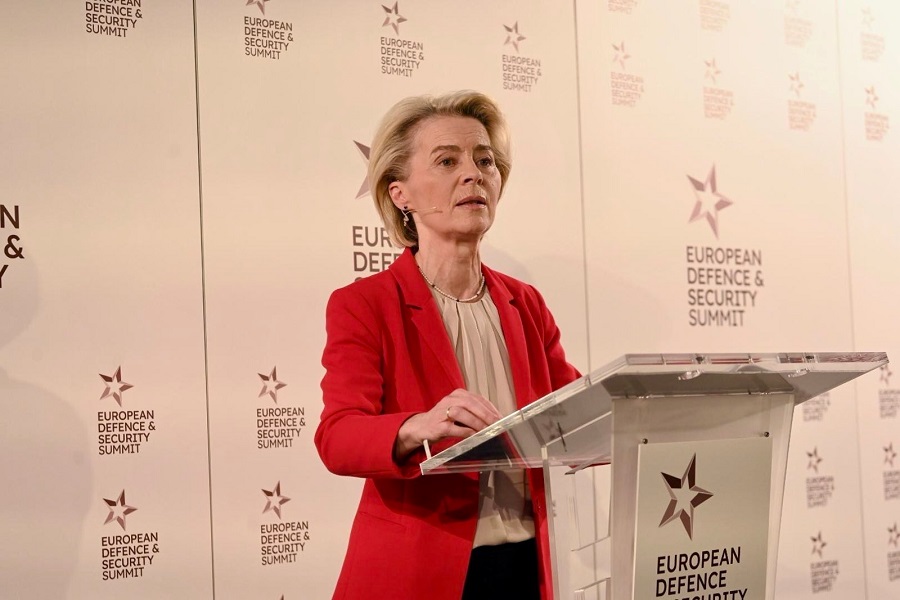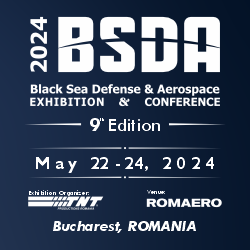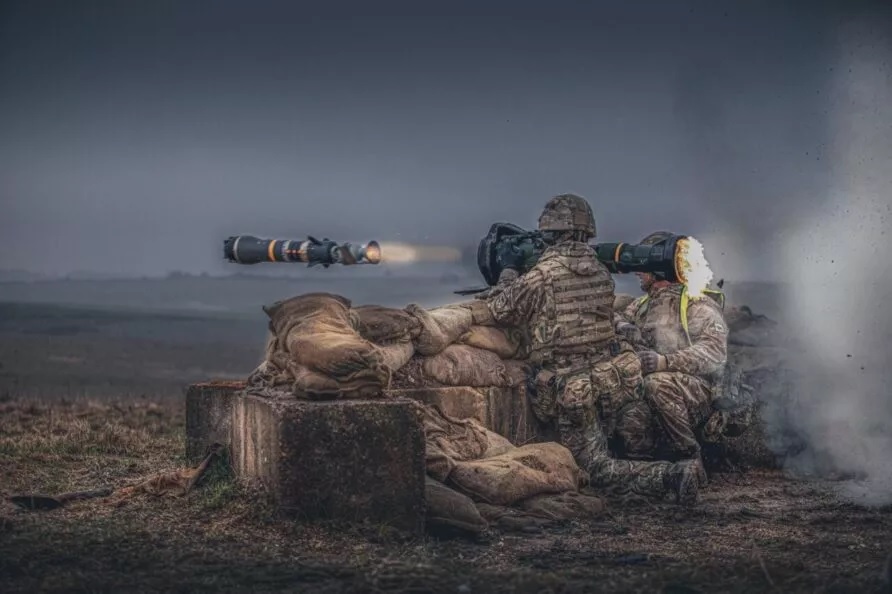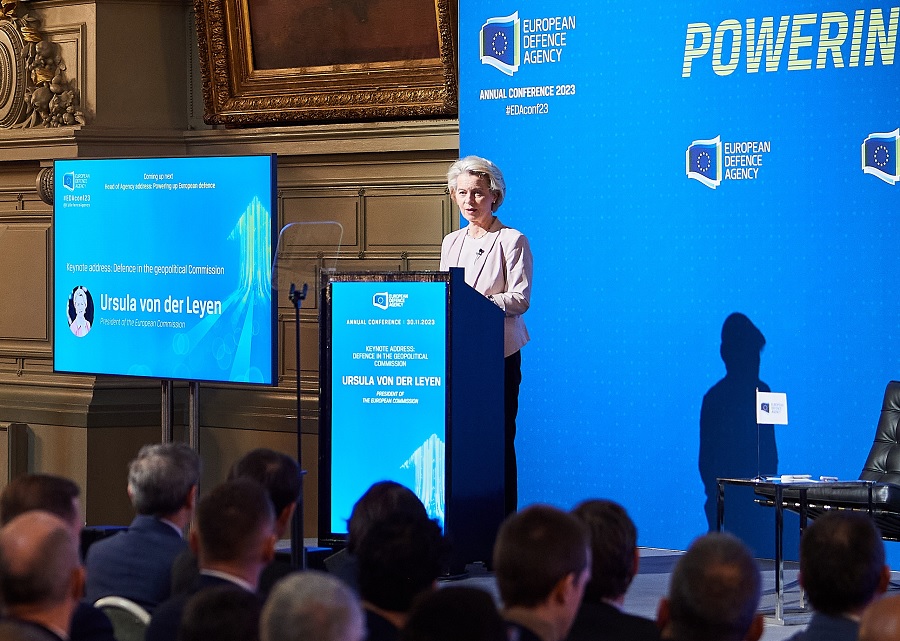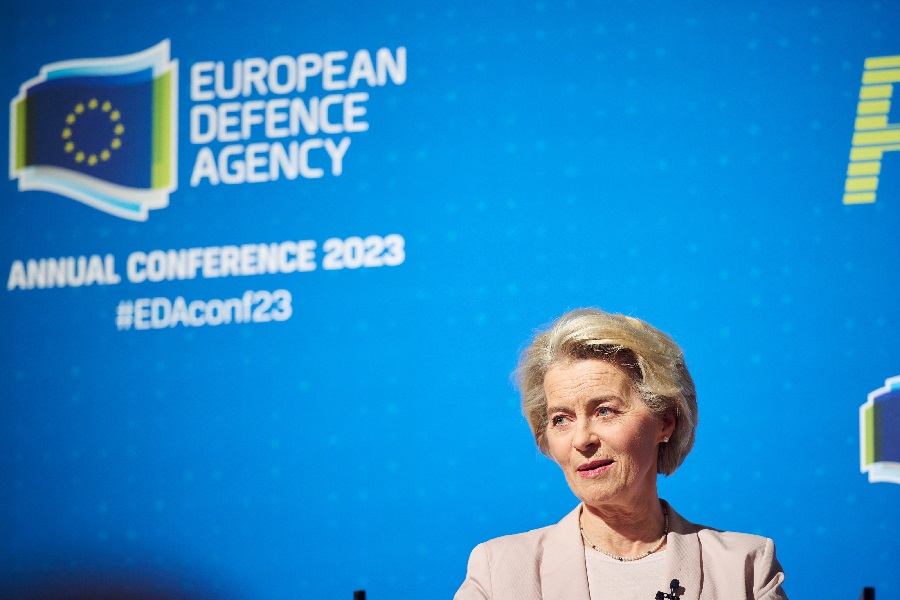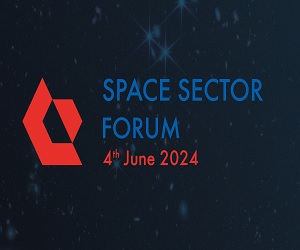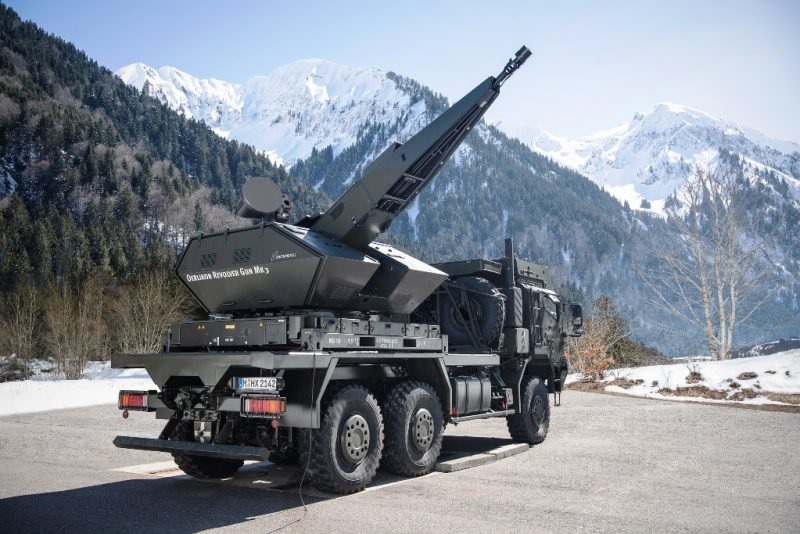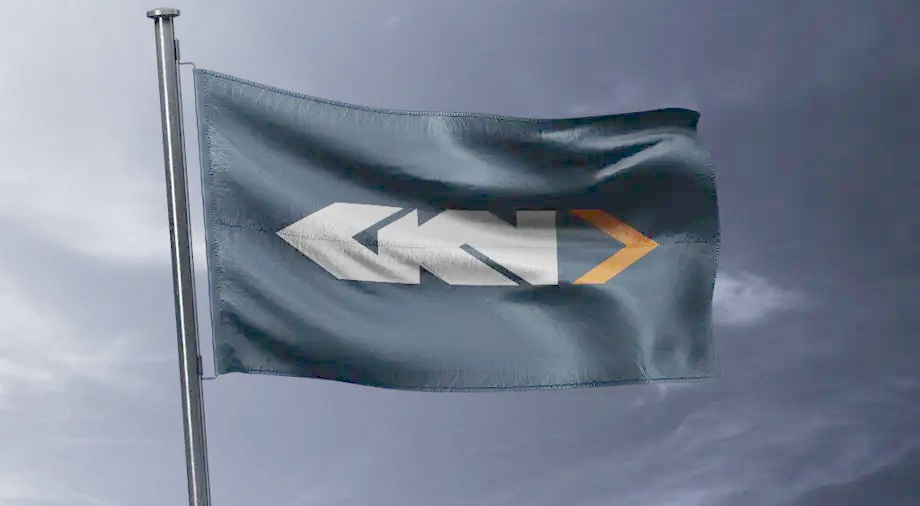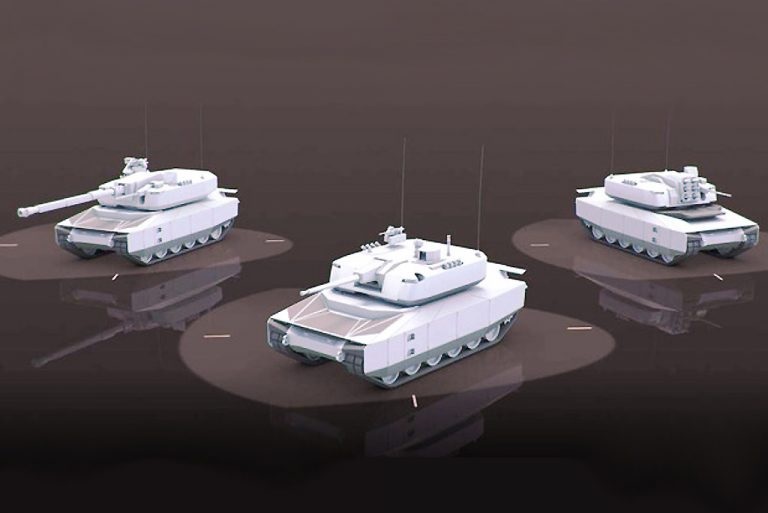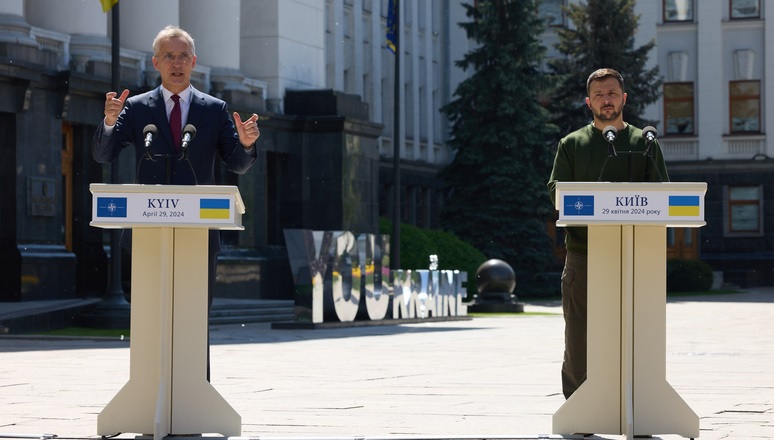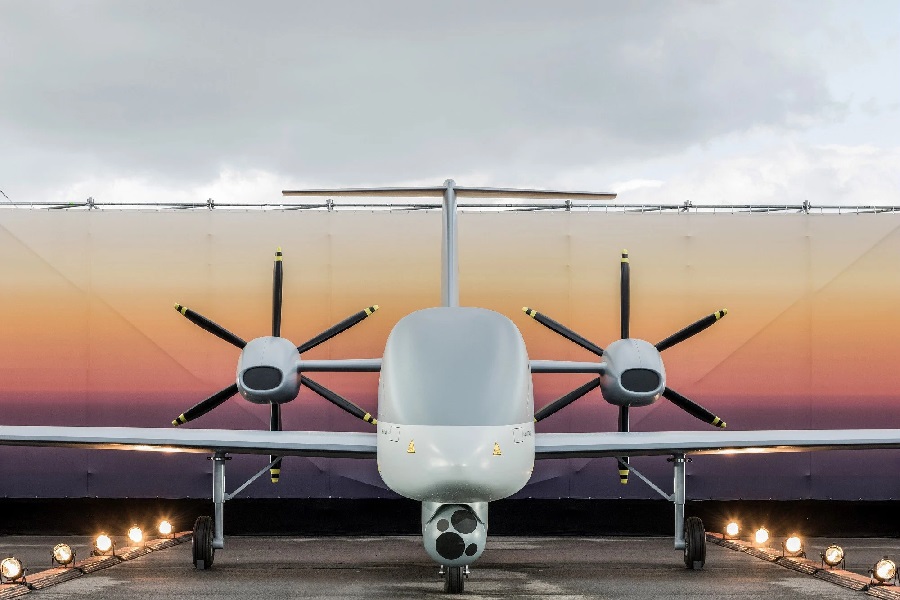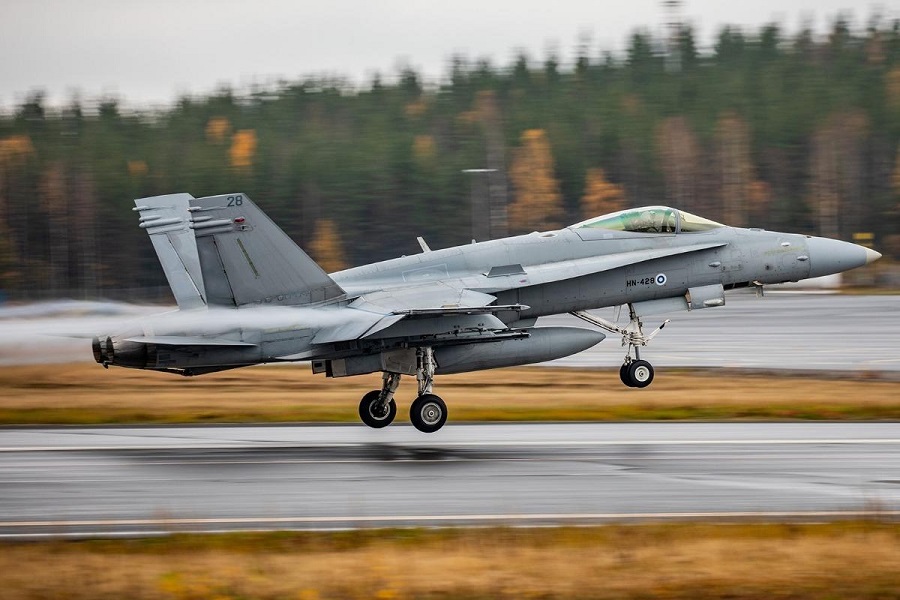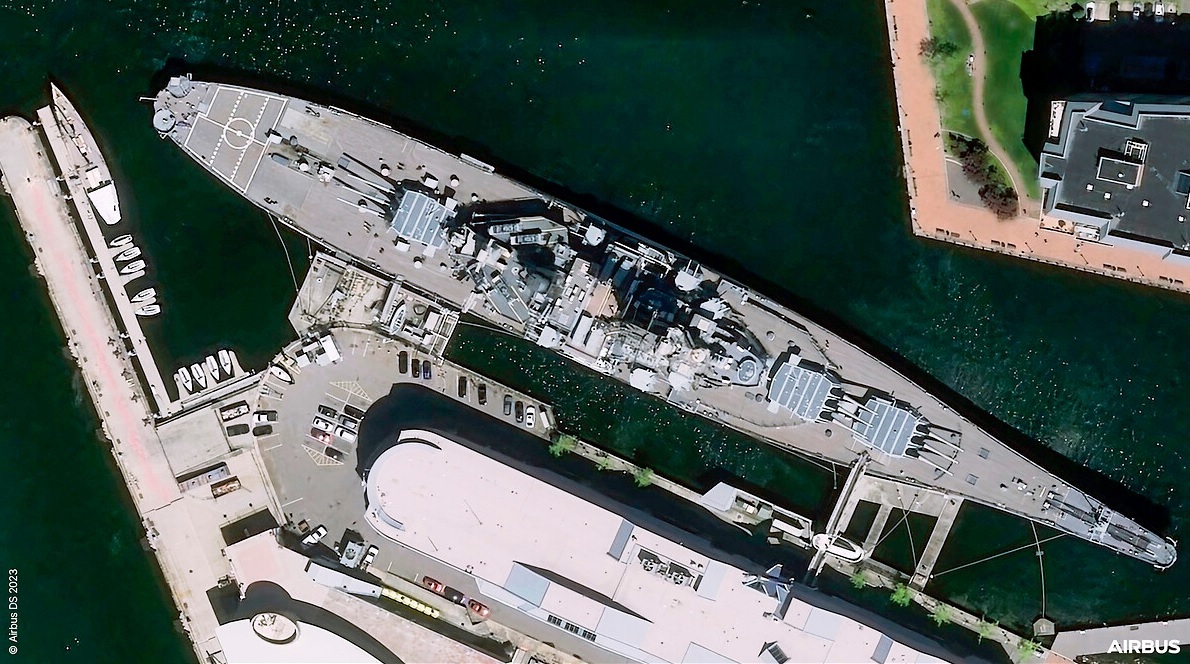Ladies and Gentlemen,
It is a pleasure to be here. Over the last years, many have been the times in which the world has collectively held its breath. Many have been the mornings in which we have woken up to a new, more dangerous reality. And, once again, we meet here today in a world more precarious and more menacing than it was 12, or 6 or even 1 month ago. The Iranian attack on Israel and the chilling sight of 185 drones and around 150 cruise and surface-to-surface missiles is the latest seismic event of our generation. At the same time, we face the urgent priority of supporting Ukraine as the Russian-inflicted war on its territory becomes ever-more bloody, intense and drawn out. And we need to work with our partners on ensuring regional stability. But we do need to take stock and look deeper at what Iran’s assault means. Because the attack, the defence and the aftermath are all instructive in different ways.
Only time and history will tell us whether this marks a definitive turning point. But what we can already see is that this attack marks a shift towards open confrontation. And it shows us the nature of modern warfare. The weapons used were far greater in number and firepower than those that have been previously employed by Iran’s proxies. The second takeaway is the nature of the defence. It is truly remarkable how effectively and swiftly defence systems were able to intercept virtually every single drone and missile. But it is no miracle. It rather shows the real value of consistent long-term investment in advanced defence capabilities and technologies. And above all it shows the value of building partnerships and cooperating with allies. The central role of the United States, the UK, France and others should not be underestimated. And nor should the role of the Arab countries in the region in averting a far greater damage.
And the third point about this weekend is what it tells us about the wider threat landscape. Because this attack should not be seen in isolation. It was the latest signal of intent of a new league of authoritarians. Russia’s brutal war of aggression against Ukraine is now in its third year and is more entrenched and intense than ever. North Korea is delivering order after order of ammunition shells to Russia. Iranian drones are flying over Ukrainian cities on a daily basis. Iran is even helping Russia with the technology and the manufacturing it needs to build those drones on home soil. More broadly, we are seeing leakage of advanced weaponry, which has until now always remained in the hands of states. Non-state groups like the Houthis are being armed with new-tech weapons to inflict untold damage. The new league of authoritarians is working in concert to tear up the international rules-based order to redraw maps across different continents and to stretch our democracies to the breaking point. So, Ladies and Gentlemen, the point is that the world is as dangerous as it has been for generations and Europe is in the middle of it. So, this is why it is time for the European awakening on defence and security. Because there is so much at stake here – our freedom and our prosperity depend on our security, and we have to bring our actions in line with this changing security environment.
Ladies and Gentlemen,
This is why we need to start working on the future of our security architecture – with all of the speed and all of the political will that is required. As part of this, there will be core action which will always remain of course in the hands of the Member States. Let me be very clear, the Member States will always be responsible for their troops and all decisions linked to that – from recruitment to training, from the doctrine that is so important to deployment decision. This is the absolute foundation for every Member State. But Europe also has tools and responsibilities in areas that are critical to our defence. Take the Single Market, or take research, take the innovation point or industry. These are all European competences – and much more. We need to use Europe’s combined financial, structural and political strength where it can have the biggest impact. Because Europe’s defence is a task for all of Europe – with Member States and EU institutions working closely together.
We have shown in the last years how this can work in practice. Member States have stepped up their defence spending. Their national defence budgets have already risen by 20% since 2022, so the beginning of the Russian aggression in Ukraine. This has started to compensate for years of underinvestment. And at the same time, we are together spending more on common capacities and projects between Europeans. Just take the European Peace Facility that has mobilised EUR 6.1 billion to support the Ukrainian armed forces with lethal and non-lethal military equipment and supplies. And of course, the European Defence Fund is investing in high-end defence capabilities in critical areas, you know them, such as naval, for the ground, air combat, space-based early warning, or take cyber. And now, with our most recent proposal for a European Defence Industrial Programme, we propose to dedicate an additional EUR 1.5 billion from the EU budget. So, we know that it can be done – and we are showing the way to a more sovereign Europe.
Let me be clear: European sovereignty is needed, but European sovereignty will never be at the expense of our partners and friends. And it will certainly never affect the importance and the need for our NATO alliance. In fact, a more sovereign Europe, and you know it, in particular in defence, is vital to strengthening NATO, as member states have plain and simply one single set of forces. You are familiar with that. But at its core European sovereignty is about taking responsibility ourselves, taking responsibility for what is vital and even existential for us. That is precisely what Leaders agreed in the Versailles Agenda just after the start of the war, followed by the Granada declaration.
Ladies and Gentlemen,
as the world gets more dangerous, it is now time to build on this and take the next leap forward on security and defence. And I believe that at European level our work should focus around three core priorities: the first is preparedness, the second is investment, and the third is partnerships. Let us start with preparedness. Strengthening Europe’s preparedness is an urgent task. As the geopolitical and security landscape becomes more difficult, so the threats faced by European countries become not only more acute but also more complex. In response, we need to be better prepared to face multi-dimensional threats, which cross over and intensify each other. Given the breadth of the risk, this cannot just be a task for one country or one defence community. It is a much broader task that will need a whole-of-society approach. The starting point for this is having a very clear picture of the threat landscape and frame our response accordingly. This is why, Josep Borrell and myself, we have asked the former President of Finland, Sauli Niinistö, to lead the work on a report on European Union preparedness. This will tap into President Niinistö’s great experience but of course also into the experience of countries like Finland and the Baltic States. They not only have an acute understanding of the risks but also of how an integrated and comprehensive response can be developed. And once again, this will require action at both national and European level.
At the European level there is a lot we can do. On risk identification, for example, and on more regularly assessing the threat landscape. Europe can of course also help coordinate the military and civilian domains. Military and civilian actors need to be fully capable and ready for all types of emergencies. This has to be based on a broad effort across society and involve different ministries at the same time in a seamless way; and, crucially, play a role in the rearming of Europe, for instance by supporting industry to manufacture the necessary capabilities to respond to all scenarios, including at the highest level of intensity. Setting this approach out on paper can be an invaluable building block for a comprehensive European Union Preparedness Strategy. And this, in turn, can have dissuasive effects on threat actors, lower residual risks and crucially offer greater assurance to our citizens on their safety and security.
The second point is about investment and industrial capacity. The threat of war may not be imminent, but it is not impossible. We should be prepared. And that starts with the urgent need to rebuild, replenish and transform Member States’ armed forces. In doing so, Europe should strive to develop and manufacture the next generation of battle-winning operational capabilities, and to ensure it has the sufficient quantity of matériel and the technological superiority that we may need in the future. That means turbocharging our defence-industrial capacity in the next five years. That is the task of the moment. At the heart of this must be one simple principle – and you have heard it many times today already: Europe must spend more, spend better and spend European. Spending better starts by aggregating demand among the Member States. Spending European means that our investments not only increase our security but of course also bring jobs, know-how and economic growth to the European Union. Spending together will help reduce fragmentation, enhance cost-effectiveness and increase the so much-needed interoperability of our armed forces.
But to do this we must collectively send a strong signal to industry. This is why we will look at how to facilitate offtake agreements for interested Member States. This would give our defence industry companies stable orders and predictability in the long run. That is the most important, the predictability for you, to really invest in what matters. It will increase the support for industrial ramp-up, as we are now doing with ammunition through ASAP. We will also identify European Defence Projects of common interest, that means in other words that we focus efforts and resources on the topic or the structure that has the biggest impact and the most added value. And we will propose on how to use the economic power of the European Union to step up investment in defence and enhance the access to finance – that is so crucial for industry. In doing so, we will focus on innovation to ensure Europe has that edge in the new technologies, which we see being deployed across the world in different conflicts.
Ladies and Gentlemen,
The last point is about partnerships. As we strengthen our own sovereignty of defence, industry and key technologies, we will also strengthen our core partnership with NATO. A more sovereign, prepared and better financed European defence will of course only serve to make NATO stronger. Over the last years, we have increased our cooperation with NATO for example against cyberattacks, for better military mobility, or to fight disinformation, the hybrid threats that we are facing. We have seen these hybrid threats and we have addressed them together with NATO. We have seen these hybrid attacks against Latvia, Poland and Lithuania organised by the Lukashenko regime. And we have seen two more EU members join the Alliance. And we have worked hand in hand when it comes to supporting Ukraine with what it needs to win this war. We will continue ensuring that our cooperation gets stronger. And at the same time, we need to look at whether we, our society, security and defence cooperation will need perhaps other partners, such as the United Kingdom. Moreover, we have proposed to increasingly bring Ukraine into our latest proposals for the European Defence Industrial Programme. So the door is open for partners to join, for partners to be included in our Defence Industrial Programme because I think it is time to together step up on defence in a way that certainly will be challenging, but together we will be able to master it.
It will require a new European defence mind-set, from Member States to institutions to industry to investors alike. And of course, it will require the political and moral courage to stand with Ukraine here on European soil for as long as it takes. Because, Ladies and Gentlemen, the cost of insecurity, the cost of a Russian victory, is far greater than any saving we could make now. The cost of facing multiple threats and conflicts without being prepared is far greater than we can afford. This is why it is time for Europe to step up on defence and security.
I thank you for your attention and long live Europe.


